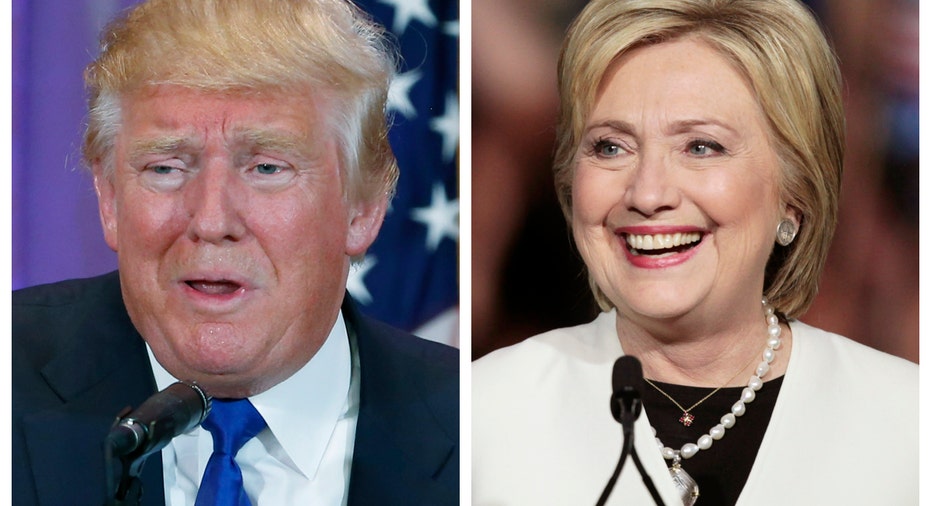Do We Need Money in Politics?

This is not a column about reform. This is not a column bemoaning the corrosive influence of money in politics. This is a column that just looks at the way campaigns have evolved over the past few years and asks a very simple question – is money still really that important in campaigns?
When people talk about the influence of money in politics, they’re specifically talking about a culture that empowers major donors to influence elections through independent expenditures and a culture that encourages pay to play governance by incentivizing politicians to dole out favors to donors in return for campaign contributions. The money mainly goes to one thing – television commercials. When you hear about the millions of dollars raised for congressional campaigns or the two billion dollars that will be spent collectively by the nominees for President, you’re really hearing about the money allocated to the tv buy.
But viewership is rapidly declining and fewer and fewer people are watching live tv (no one pauses the DVR to watch a political ad). Senior citizens (who are prime, coveted voters) are now more and more technically fluent, meaning you can reach them through ways other than tv spots. And as more and more people watch Netflix, Hulu and Amazon Prime and fewer watch CBS, TNT or even ESPN, the efficacy of tv ads in campaigns is becoming questionable at best.
Donald Trump has barely run tv spots and he’s on his way to capturing the Republican nomination. In last week’s New York primary, Bernie Sanders outspent Hillary Clinton on tv 2-1 and still lost by a 60-40 margin. Jeb Bush outraised and outspent his rivals by a mile and barely made a dent in the electorate. So maybe our focus on removing the influence of money in politics is misplaced.
The odds of passing major, truly meaningful campaign finance reform in Congress (or most state legislatures) are low. The odds of the Supreme Court reversing Buckley v. Valeo or Citizens United aren’t much higher. And even campaign finance systems praised by policy experts – like New York City’s public finance matching system – can easily be circumvented, as the multiple criminal investigations into Mayor Bill de Blasio’s fundraising operation clearly shows. But maybe we don’t need major systematic reform or legal change. Maybe we just need campaigns and candidates to start realizing they don’t need that much money in the first place.
Apart from tv ads, the major components of a serious campaign – digital ads, grassroots outreach, a campaign staff, polling, collateral like signs and buttons – only make up a modest percentage of most campaign budgets. And yet the time devoted to raising the money for tv ads is vast. Candidates (and sitting elected officials) right now spend far too many waking hours raising money (just ask them). Their decisions around legislation and policy are influenced by donors, by lobbyists (who are counted on to raise money) and by interest groups (who threaten to run negative ads if they don’t get what they want). And many of those same politicians are then accused of engaging in pay to play politics, with some finding themselves under criminal investigation for it.
None of this may be necessary. A sophisticated digital, pr and grassroots campaign often reaches more voters, with more efficacy, at a fraction of the cost (and the vast majority of today’s political tv spots are hackneyed, and therefore fairly ineffective anyway). Yes, it’s harder for PACs and outside groups to reach as many voters or strike fear in as many candidates without the tool of television, so they’ll use it for as long as they can. But their influence is solely dependent on the perception of their strength, which is a direct correlation with the perception of the power of television ads. So as candidates, sitting elected officials, campaign staff, reporters, political operatives and others in the system start to realize that the thing they value the most in campaigns isn’t nearly as important as they thought it was, the influence of money in politics – and the need for money in politics – will wane with it.
Sure, some who directly benefit from the status quo (tv stations, ad makers and buyers) will scoff and argue that tv matters as much as ever. What else are they going to say? But one look at the way today’s campaigns are playing out tells you they’re wrong. And the sooner we realize that, the sooner we’ll end up with a more honest, more democratic system. In other words, saving our democracy probably doesn’t require radical reform. It just requires opening our eyes.
Bradley Tusk is the founder and CEO of Tusk Holdings, the parent company of Tusk Strategies, Tusk Ventures, Kronos Archives, the Ivory Gaming Group and the Tusk Montgomery Family Foundation.
Prior to creating Tusk Strategies in 2010, Bradley served as Mike Bloomberg’s campaign manager, guiding Mayor Bloomberg to a third term. In 2016 he advised Bloomberg on a potential presidential run.
Earlier in his career, he created and ran Lehman Brothers’ lottery privatization group. His career in the public sector began at the New York City Parks Department in 1995, acting as spokesman and then senior advisor to Commissioner Henry Stern. Bradley then served as Communications Director for U.S. Senator Chuck Schumer, before becoming Special Advisor to Mayor Bloomberg at City Hall. From 2003-2006, Bradley was Deputy Governor of Illinois.
Bradley received his B.A. from the University of Pennsylvania in 1995 and a J.D. from the University of Chicago Law School in 1999. He serves on the boards of Creative Time, StoryCorps, and the New York Advisory Board of the Trust for Public Land.



















